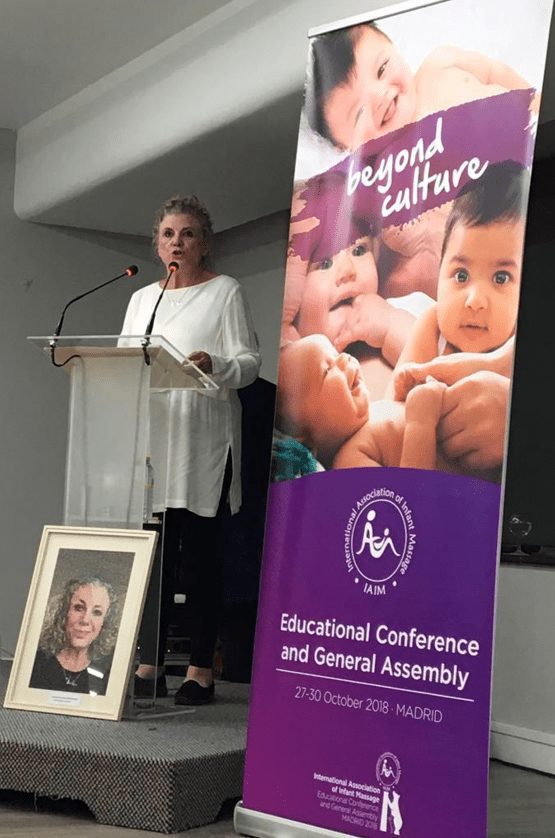Two new longitudinal studies that appear in the journal Child Development offer insights on how to decrease the problems associated with premature birth.
In the first study, researchers in Israel found that early positive caregiving can reduce risks associated with preterm birth. In the second study, researchers in Norway identified an intervention associated with better outcomes for preterm babies in later childhood.
Children born prematurely are at increased risk for poor cognitive and social outcomes throughout childhood, and environmental factors such as parenting may increase or reduce this risk. Researchers in Israel studied 150 two-parent, low to middle-income families of infants; about half of the infants were born preterm (28-34 weeks) with no significant medical complications and half were born full-term.
When the babies were 6 months old, each parent completed questionnaires assessing emotional distress (symptoms of depression and anxiety as well as stress from parenting). In addition, family warmth and cooperation were assessed based on videotaped interactions of the parents and infants playing together. When the babies reached 12 months, researchers assessed the infants’ cognitive and social competencies.
Overall, preterm infants were more strongly affected by the quality of their caregiving environment than their full-term counterparts: Infants born prematurely who were exposed to high levels of emotional stress from their mothers and tense, uncooperative relationships within their families had worse cognitive and social outcomes than full-term infants.
However, infants born prematurely who were exposed to low levels of maternal distress and had warm, cooperative family relationships had similar cognitive outcomes and even better social abilities than infants born full term. Mothers’ emotional distress and the quality of family relationships didn’t affect full-term infants’ cognitive and social development.
The infants in this study were not exposed to high-risk social conditions (e.g., domestic violence, substance abuse, or psychiatric disorders). Exposure to such extreme environmental circumstances may harm children’s outcomes among both preterm and full-term infants. So the researchers concluded that preterm infants were more affected by their caregiving environment within the normal range of environmental functioning.
“We found that preterm infants are particularly sensitive to both negative and positive effects of parenting on development,” explains Noa Gueron-Sela, who led the study when she was at Ben-Gurion University of the Negev. “While stressful parenting environments predicted low developmental outcomes, positive caregiving experiences buffered the negative effects of prematurity on babies’ cognitive development and promoted their social communication competencies.”
In the study out of Norway, researchers sought to determine whether a brief intervention during the neonatal period could address the behavioral development of children born prematurely. About 40 percent of children born before 37 weeks have attentional and adaptive problems throughout elementary school, often requiring specialized educational and psychiatric services.
Researchers offered the parents of 72 children born preterm an early, brief intervention in the four weeks after birth. The intervention, called the Mother-Infant Transaction Program (MITP), consists of 11 one-hour sessions (some in the hospital before discharge, some at home) during which parents could talk about their experiences related to the pregnancy and delivery with support from a nurse, and learn about how to interpret their children’s strengths and limitations. The program’s goals were to promote more sensitive and positive parent-child interactions, and enhance parents’ enthusiasm for their children and sense of empowerment as parents.
After the program was completed, researchers received reports from parents and teachers about the children’s behavior through age 9. The behavioral development of the 72 children born prematurely was compared with that of 74 children born prematurely who didn’t take part in the intervention and 75 children who were born full term and also didn’t participate in the intervention. The children born prematurely (before their mothers reached 37 gestational weeks of pregnancy) weighed less than 4 pounds, 6.5 ounces at birth.
At ages 7 and 9, the children whose parents took part in the intervention had significantly fewer attentional problems than the children born preterm whose parents didn’t participate in MITP, and they adapted more successfully to school.
At age 9, teachers and parents of the children born preterm whose parents took part in MITP assessed the behavioral problems and social and academic competencies of these children as similar to those of full-term children. Children born preterm whose parents didn’t take part in the intervention were perceived by teachers to have more difficulties in their everyday lives at age 9 than children born preterm whose parents took part in MITP.
Further supporting the findings: Parents of children born preterm who didn’t take part in the intervention reported that they sought help and referrals to child psychiatric services twice as often as parents who took part in MITP.
“Our findings suggest that early intervention works for parents and children who experience a preterm birth,” says Inger Pauline Landsem, a doctoral student at University Hospital of North Norway and at the Arctic University of Norway, who led the study. “With the help of the MITP intervention, children born preterm can overcome the difficulties most frequently reported in their early school years.”




